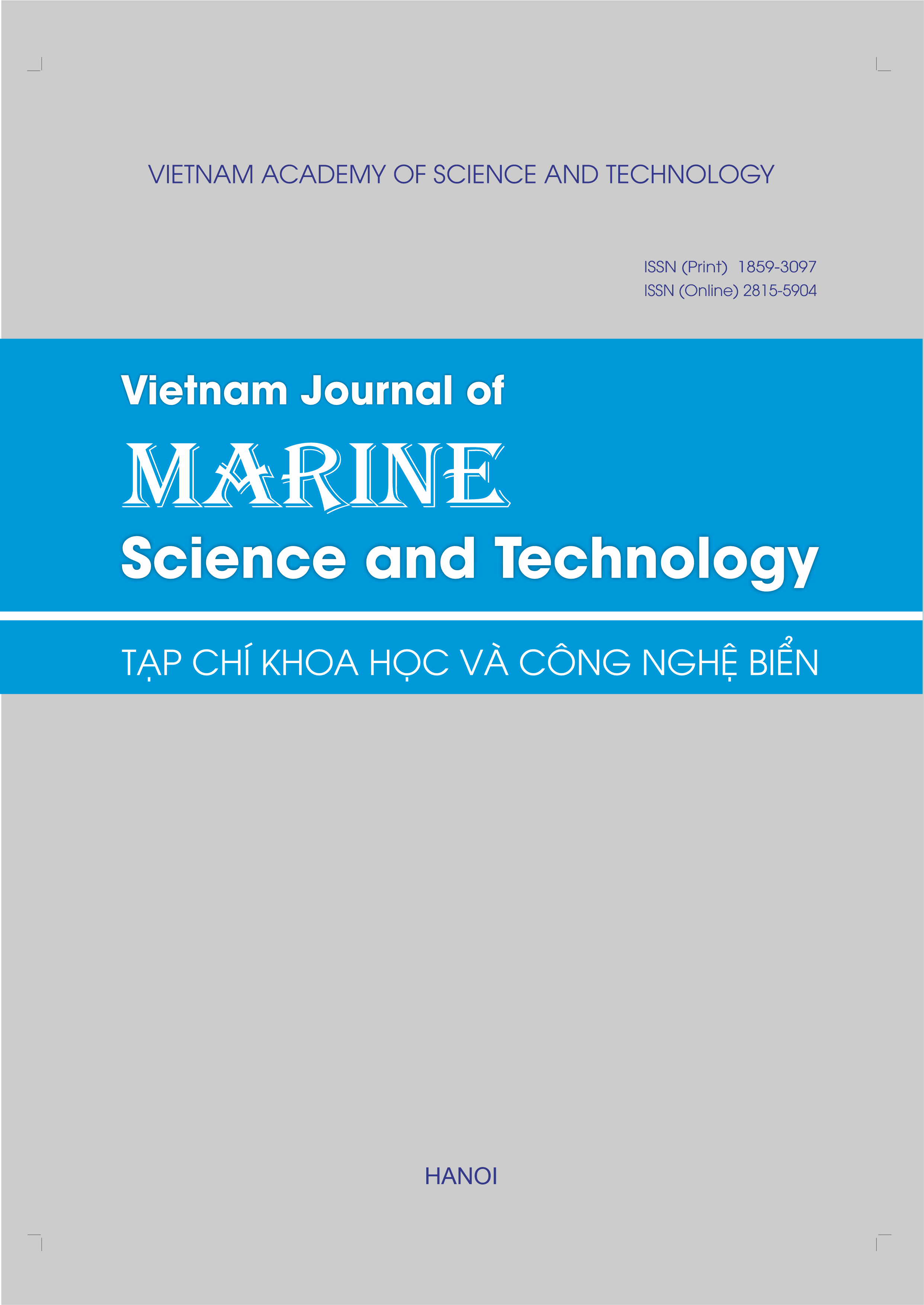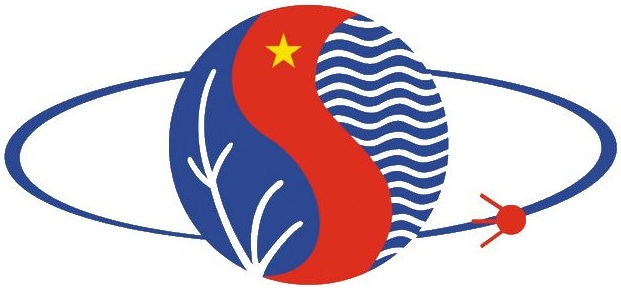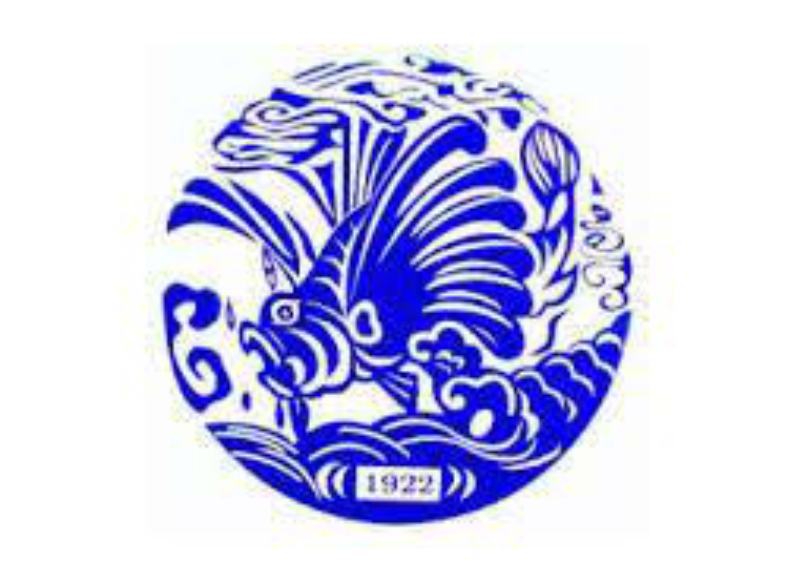
Publication Ethics
PUBLICATION ETHICS AND MALPRACTICE STATEMENT
Vietnam Journal of Marine Science and Technology (VJMST) is peer-reviewed research journal published by Publishing House for Science and Technology (Vietnam Academy of Science and Technology). Our publication ethics and publication malpractice statement adhere to the highest standards of integrity and ethical conduct. We base our guidelines on the Code of Conduct and Best Practice Guidelines for Journal Editors and the Code of Conduct for Journal Publishers. Additionally, we utilize the Publishing Ethics Resource Kit and ensure compliance with the recommendations provided by Elsevier and the Research Publishing Ethics Guidelines of the Cambridge University Press:
https://publicationethics.org/
https://www.elsevier.com/editors/perk
https://www.cambridge.org/core/about/ethical-standards
IN GENERAL
Research Integrity
VJMST is committed to upholding the highest standards of integrity and ethical conduct in research and publication. We expect all research published in our journal to adhere to the following principles:
Honesty in all aspects of research.
Scrupulous care, thoroughness, and excellence in research practice;
Transparency and open communication;
Care and respect for all participants in and subjects of research.
In addition to the general principles outlined above, VJMST will provide specific guidelines and policies for authors on research integrity and ethics appropriate to their subject matter and discipline.
Editorial Process
We are committed to upholding editorial independence and ensuring that it is not compromised by conflicts of interest, fear, or any form of corporate, business, financial, or political influence. Our editorial processes are designed to maintain and safeguard this commitment to editorial independence.
We do not discriminate against authors, editors or peer reviewers based on personal characteristics or identity.
Peer Review
Peer review plays a crucial role in maintaining the standards of our publications. To ensure rigorous, fair, and effective peer review, we have implemented the following measures:
- We provide appropriate systems, training, and support to facilitate rigorous, fair, and effective peer review for all of our publications.
- We encourage our editors and peer reviewers to familiarise themselves with and adhere to relevant best practice guidelines on peer review. For journal editors and peer reviewers, please refer to COPE's Ethical Guidelines for Peer Reviewers.
-We expect individuals responsible for overseeing the peer review process to be capable of identifying warning signs of fraudulent or manipulated peer review. If any concerns arise, please address them by sending an email to publishingethics@cambridge.org. Those overseeing the peer review process may be internal to Cambridge University Press or contracted by us.
-We support to our editors and peer reviewers in investigating and taking appropriate action regarding any suspected cases of manipulated or fraudulent peer review.
-We prioritize the protection of confidentiality for participants involved in the peer review process, especially when anonymity is a key component of the publication's peer review procedure. We also expect our publishing partners, authors, and peer reviewers to uphold any applicable confidentiality agreements for the journal and provide the necessary information to ensure compliance with these arrangements.
Authorship and Contributorship
The following principles are recommended for application:
- Making significant contributions to the conception or design of the work, or to the acquisition, analysis, or interpretation of data for the work; and/or
- Playing a role in drafting the work or revising it critically for important intellectual content; and
- Giving final approval of the version to be published; and
-Agreeing to be accountable for all aspects of the work and ensuring that any questions regarding the accuracy or integrity of any part of the work are appropriately investigated and resolved.
The corresponding author is designated as the individual responsible for managing the manuscript and handling correspondence throughout the publication process. It is expected that the corresponding author has the authority to represent all co-authors in all matters related to the publication, including supplementary material. This includes obtaining necessary agreements and keeping co-authors informed about the manuscript's status during the submission, review, and publication stages. Furthermore, the corresponding author serves as the primary point of contact for any post-publication inquiries, including those related to the integrity of the work.
We encourage authors to acknowledge individuals who have contributed to the research or writing process but do not meet the criteria for authorship. Their valuable contributions, such as research or writing support, can be recognized in the Acknowledgments section of the publication.
Plagiarism
Plagiarism can manifest in various forms and across different sources and media, including:
- Text, illustrations, extended mathematical derivations, computer code, and other written or visual elements.
- Content obtained from online sources, such as websites, or taken from manuscripts or other media.
- Published and unpublished materials, including lectures, presentations, and grey literature.
We do not tolerate plagiarism in any of our publications, and we reserve the right to check all submissions through appropriate plagiarism checking tools. Manuscripts that are found to contain suspected plagiarism, either in full or in part, will be rejected. For this purpose, our journal utilizes the iThenticate CrossCheck system, which helps identify instances of overlapping or similar text in submitted manuscripts.
Duplicate and Redundant Publication
We do not support substantial overlap between publications, unless:
Duplicate or redundant publication, also referred to as 'self-plagiarism,' occurs when an author(s) publishes their work or significant portions of it more than once without proper cross-referencing or reasonable justification for the duplication. This can happen within the same language or across different languages.
As a publication, we discourage significant overlap between publications, unless:
- There is a clear editorial belief that it will enhance the academic discourse.
- We have obtained explicit approval from the original publication.
- We include proper citation of the original source.
When authors submit manuscripts to our journals, it is expected that these manuscripts are not simultaneously under consideration, accepted for publication, or in press with any other journal, book, or similar entity. However, it is important to note that the deposition of a preprint on the author's personal website, in an institutional repository, or in a preprint archive should not be regarded as prior or duplicate publication.
Conflicts of Interest and Funding
Authors must disclose any potential conflicts of interest that may affect the objectivity or integrity of their publication. Conflicts of interest encompass situations that could be perceived as exerting undue influence on the presentation, review, or publication of the work. Such conflicts can be financial, non-financial, professional, contractual, or personal in nature. In addition to conflicts of interest declaration, our journal mandates the inclusion of a funding declaration. This ensures transparency regarding the financial support received for the research and publication of the work.
Retractions, Corrections, and Expressions of Concern
Journal editors will handle retractions, corrections, and expressions of concern following the guidelines provided by COPE (Committee on Publication Ethics). In the event that an author is found to have made an error, the journal will issue a corrigendum to rectify it. Conversely, if the journal itself is found to have made the errors, an erratum will be issued. Retractions are typically reserved for articles that have significant flaws to the extent that their findings or conclusions should not be relied upon. For journals that publish Accepted Manuscripts, minor changes may be made during typesetting or proofreading. However, any substantial corrections will be carried out in accordance with COPE's Retraction Guidelines.
Fraudulent Research and Research Misconduct
If any publication is found to contain fraudulent results, it will be retracted, or alternatively, an appropriate correction or expression of concern will be issued. For further information regarding the procedures for retractions, corrections, and expressions of concern, please refer to the corresponding section in these guidelines.
Transparency
We strive to follow COPE's Principles of Transparency and Best Practice in Scholarly Publishing.
IN DETAIL
Duties of Editors
Publication decision
The editors of VJMS are entrusted with the responsibility of making publication decisions for the articles submitted to the journal, following a thorough peer-review process. These decisions are based on the established policies set by the journal's editorial board and are influenced by the authenticity and significance of the work to the research community and readership. The editors are obliged to adhere to the relevant legal requirements, including those pertaining to defamation, piracy, and plagiarism. In certain situations, the editors may seek input from other editors or reviewers to aid in the decision-making process.
Editors evaluate manuscripts based on their intellectual content, irrespective of the authors' race, gender, sexual orientation, religious belief, ethnic origin, citizenship, or political philosophy.
Confidentiality
The editor, along with the editorial staff, is obligated to maintain strict confidentiality regarding the submitted manuscripts. They must not disclose any information about a manuscript to anyone other than the corresponding author, reviewers, potential reviewers, other editorial advisers, and the publisher, as deemed appropriate and necessary for the peer-review and publication process.
Disclosure and Conflicts of interest
Editors are prohibited from using any unpublished materials disclosed in a submitted manuscript for their own research, unless they have obtained explicit written consent from the author. Additionally, any privileged information or ideas acquired through the peer-review process must be treated as confidential and should not be utilized for personal advantage. Editors should recuse themselves from considering manuscripts in which they have conflicts of interest due to competitive, collaborative, or other relationships or connections with any of the authors, companies, or potentially related institutions. In such cases, editors should seek assistance from a co-editor, associate editor, or another member of the editorial board to review and handle the manuscript. Editors should ensure that all contributors disclose any relevant competing interests and, if necessary, publish corrections if competing interests are discovered after publication. In cases where competing interests are identified, appropriate actions should be taken, such as publishing retractions or expressions of concern as deemed necessary.
Involvement and cooperation in investigations
Editors are expected to promptly address ethical complaints related to submitted manuscripts or published papers, in collaboration with the publisher. Responsive measures should be taken, which typically involve contacting the author of the manuscript or paper and carefully evaluating the presented complaint or claims. Depending on the outcome of the investigation, additional communications may be initiated with relevant institutions and research bodies. If the complaint is substantiated, appropriate actions such as publishing a correction, retraction, expression of concern, or other relevant note shoud be taken. Every reported act of unethical publishing behavior must be looked into, even if it is discovered years after publication.
Duties of Reviewers
Contribution to Editorial Decision
Peer review plays a vital role in the editorial decision-making process by aiding the editor in evaluating submitted manuscripts. It also serves as a valuable opportunity for constructive feedback and suggestions to help authors enhance the quality of their papers. As an integral part of formal scholarly communication, peer review is fundamental to upholding the standards and integrity of the scientific method.
Promptness
If a selected referee feels unqualified to review the research presented in a manuscript or foresees an inability to complete the review within the specified timeframe, it is their responsibility to promptly inform the editor and withdraw from the review process.
Confidentiality
All manuscripts received for review must be treated as confidential documents, and strict confidentiality must be maintained throughout the review process. Reviewers and editorial staff must not disclose, discuss, or share the content of the manuscripts with unauthorized individuals, except as explicitly authorized by the editor.
Standards of Objectivity
Reviews should be conducted in an objective manner, focusing on the scientific merits of the manuscript. Personal criticism of the author is considered inappropriate and should be avoided. Reviewers are expected to provide constructive and professional feedback to authors, presenting their views clearly and providing supporting arguments.
Acknowledgement of Source
Reviewers should to identify any relevant published work that has not been cited by the authors. If reviewers become aware of any observation, derivation, or argument that has been previously reported and is relevant to the manuscript under review, they should ensure that the authors provide the appropriate citation. Reviewers should also inform the editor of any significant similarities or overlaps between the manuscript under consideration and any other published work.
Disclosure and Conflicts of Interest
Reviewers must not use any unpublished materials disclosed in a submitted manuscript for their own research without obtaining the author's express written consent. Furthermore, any privileged information or ideas acquired through the peer review process must be treated as confidential and should not be utilized for personal gain. Reviewers should abstain from evaluating manuscripts if they have conflicts of interest arising from competitive, collaborative, or other associations with any of the authors, companies, or institutions affiliated with the papers.
Duties of Authors
Reporting standards
Authors of original research reports are responsible for providing a precise and honest portrayal of their work, along with an objective discussion of its significance. The underlying data must be accurately presented in the paper. Sufficient details and references should be included to enable others to replicate the study. Any fraudulent or knowingly inaccurate statements are considered unethical and are not permissible.
Data Access and Retention
Authors are requested to submit the raw data associated with their paper for editorial review. They should be ready to provide public access to this data, as far as it is feasible and in line with the ALPSP-STM Statement on Data and Databases. Moreover, authors should be willing to retain such data for a reasonable duration after publication.
Originality and Plagiarism
Authors must ensure that their work is entirely original, and if they have utilized the work and/or words of others, proper citation or quotation must be employed. Plagiarism can manifest in various ways, including presenting someone else's work as the author's own, copying or rephrasing substantial portions of another's work without giving appropriate credit, or claiming results from research conducted by others. Plagiarism, in any form, represents unethical publishing conduct and is not tolerable.
Multiple, Redundant or Concurrent Publication
Authors should refrain from publishing manuscripts that describe essentially the same research in multiple journals or primary publications. Submitting the same manuscript to multiple journals is considered unethical publishing conduct and is not acceptable. Generally, authors should avoid submitting previously published papers to another journal for consideration. However, there are certain circumstances where the publication of certain types of articles (e.g., clinical guidelines, translations) in multiple journals can be justified, provided specific conditions are met. The authors and editors of the involved journals must mutually agree to the secondary publication, which should reflect the same data and interpretation as the primary document. The primary reference must be cited in the secondary publication.
Acknowledgement of Sources
Authors must properly acknowledge the work of others, and should cite influential publications that have shaped the nature of the reported research. Information obtained privately, such as through conversations, correspondence, or discussions with third parties, must not be used or reported without explicit written permission from the source. Similarly, information acquired through confidential services, such as manuscript refereeing or grant application reviewing, should not be used without explicit written permission from the respective author involved in those services.
Authorship of the Paper
Authorship should be attributed to individuals who have made substantial contributions to the conception, design, execution, or interpretation of the study being reported. All individuals who have made significant contributions should be listed as co-authors. Those who have participated in specific substantive aspects of the research project should be acknowledged or recognized as contributors. The corresponding author holds the responsibility of ensuring that all appropriate co-authors are included and no inappropriate co-authors are listed in the paper. Moreover, the corresponding author should confirm that all co-authors have reviewed and approved the final version of the paper and have consented to its submission for publication.
Disclosure and Conflicts of Interest
All authors are required to disclose any financial or other significant conflicts of interest that could potentially influence the results or interpretation of their manuscript. Additionally, all sources of financial support for the project should be acknowledged. Examples of potential conflicts of interest that should be disclosed include employment, consultancies, stock ownership, honoraria, paid expert testimony, patent applications/registrations, and grants or other funding. It is important to disclose potential conflicts of interest at the earliest stage possible.
Fundamental errors in published works
When an author discovers a significant error or inaccuracy in his/her own published work, it is the author's obligation to promptly notify the journal editor or publisher and cooperate with them to retract the publication.



